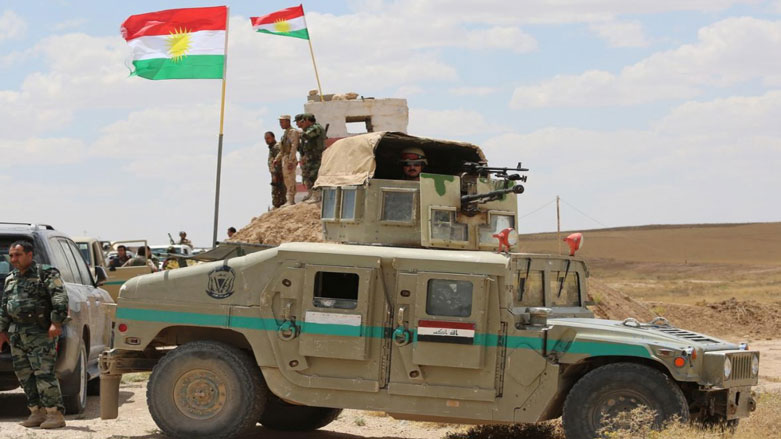US supports unified Iraq, while it also understands Kurdish aspirations

WASHINGTON DC, United States (Kurdistan24) - "The United States supports a unified, federal, stable and democratic Iraq.” So said Heather Nauert, the State Department’s new Spokesperson, in a written statement issued late on Thursday afternoon.
The statement explained the US position on the previous day's announcement that the political parties of the Kurdistan Region had agreed on a date for a referendum on independence.
From a Kurdish perspective, that official US language does not sound promising. However, the next sentence does offer something to the Kurds. “We understand and appreciate the legitimate aspirations of the people of Iraqi Kurdistan,” it says.
Yet Iraq’s Kurds have long aspired to be independent of Baghdad’s rule. One sentence, thus, contradicts the other, so noted Norvell De Atkine, a retired US Army colonel and Middle East scholar.
Nauert claimed that a referendum “will distract from more urgent priorities: the defeat of ISIS, stabilization and the return of the displaced, managing the Region’s economic crisis, and resolving the Region’s internal political disputes.”
De Atkine suggested that what the State Department really means is that while it sympathizes with the Kurdish people, now is not the time for a referendum on independence - There are too many other problems.
De Atkine may well be right. Nauert also said in a press briefing earlier that afternoon, “First and foremost we have to defeat [the Islamic State (IS).] Once that is done, this is something that [Erbil and Baghdad] can then address.”
When in recent history has Iraq been without major problems? Perhaps, one key source of those problems is Baghdad’s failure to reflect the aspirations of significant segments of the Iraqi population? Thus, without fundamental political change, there will not be political stability.
That has long been a complaint of Kurdish officials.
Notably, the position of the State Department is at odds with other perspectives within the US government.
Intelligence agencies do not make policy. They make assessments, which can then help form the basis for policy-making. Sometimes an assessment is quite at odds with a policy, suggesting that either the assessment is wrong or the policy is based on faulty assumptions.
This seems to be one such case. Last month, Lt. Gen. Vincent R. Stewart, head of the Defense Intelligence Agency (DIA), told the Senate Armed Services Committee that Kurdish independence “is on a trajectory, where it is probably not ‘if,' but ‘when.'”
If the DIA is correct, then the US should seek to manage the political changes, including Kurdish independence, which will promote stability.
Indeed, Stewart warned that the “greatest challenge” would be “to reconcile the differences between the Shia-dominated government, the Sunnis out west, and the Kurds in the north.”
“Failure to address these challenges,” he cautioned, “will ultimately result in conflict among all of the parties,” which could deteriorate into “civil strife” in Iraq despite IS’ military defeat.
Ironically, Russia’s position is more consistent with the DIA assessment than is the US position.
At year’s end, Russian President Vladimir Putin regularly holds a major press conference that lasts several hours.
Last December, Kurdistan24’s Moscow bureau chief asked Putin his position on Kurdish self-determination. Putin responded that it was a matter for Baghdad and Erbil to decide.
“We will not interfere in the domestic affairs of Iraq,” he said.
The Kurdish political parties have agreed on the independence referendum and a date for holding it. Almost certainly, that will proceed as planned, and, almost certainly, the Kurdish people will overwhelmingly vote for independence. US officials might begin to think about formulating a position that goes beyond simply seeking to postpone that event.
